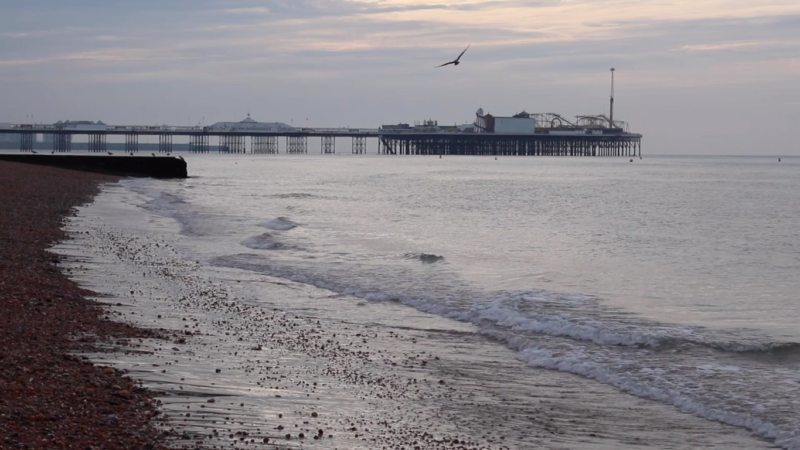
Labour’s chances of winning in Brighton Pavilion – the constituency which takes its name from the eccentric, romantic-gothic former Royal residence at its heart – significantly increased yesterday, as Caroline Lucas, its MP for the last 13 years, announced she won’t stand again.
In a letter to constituents, Lucas says the intensity of her constituency commitments together with the responsibilities of being her party’s sole MP mean that she hasn’t been able to focus as much as she would like on the existential challenges of the nature and climate emergencies.
Polling released earlier this week suggesting a Labour win in Pavilion and Labour’s recent local election landslide in the city might also be described as an existential challenge for local Greens, albeit on a different level.
Local election win could lay the groundwork for regaining the seat
Under leader Bella Sankey’s competent and ambitious direction, the new Labour council has already started to get the Green Party’s famously poor administration of public services fixed. Although Caroline Lucas was known to disagree with the previous Green administration on occasion, and its loss might not be said to be existential to her campaign, council control now being in the hands of a whopping Labour majority has surely removed what would have been a key element of complementary infrastructure for her.
Gordon Nardell KC, vice-chair of campaigns for Brighton Pavilion and former parliamentary candidate, told me recently that a similar takeover of the Lib Dem-led Southwark council loosened Simon Hughes’s grip on the constituency of Bermondsey and Old Southwark such that, at the 2015 general election, Hughes lost his seat to Labour’s Neil Coyle, concluding Hughes’s 32-year career as an MP. And while Caroline Lucas has an impressive 13 years to point to, her successor is unlikely to have similar.
As well as an as-yet unnamed successor without Caroline Lucas’s cult-like status and formidable track record, there are further reasons for Labour to be cautiously optimistic in Brighton Pavilion. The constituency – which sits at the centre of the city and encompasses not just the Royal Pavilion but the elegant and bohemian Lanes shopping area, seafront promenade and Grand hotel as well as pockets of significant economic deprivation – was held by David Lepper for the Labour and Co-operative Party for a full 13 years before it returned Caroline Lucas, and today, it is flanked by Labour-held Hove (Peter Kyle MP) and Kemptown (Lloyd Russell-Moyle MP).
Strong campaigning and radical polices were key to Labour’s win
Ty Galvin, Maureen Winder and Tim Rowkins – the new Labour councillors who successfully dislodged three Green candidates in Hanover and Elm Grove ward – are part of a diverse cohort of new Labour councillors across the city. Between them, they can speak from personal experience to the older, BAME, female people and young families voting in the area, and they say therein partly lies the foundation of their recent success.
In most part, however, it’s thanks to their strong campaigning and compelling, radical set of policies that had local environmental concerns at their heart. One of the new Labour administration’s first actions has been to reconstitute the terms of the council’s environment committee to include the South Downs and the sea. Encompassing the rare and precious chalk grassland habitat that borders Brighton to the north and the sea, which the Tories have allowed to be a dumping ground for sewage for far too long, shows their commitment to environmentalism at a local as well as wider level.
The new Labour councillors are tackling basic services too – recycling, street cleaning and weed control all being fundamentally important to the fabric of the city, as much as the environment. For all three councillors, being long-standing members of the diverse community of Hanover and Elm Grove has helped them prioritise what really matters to residents.
Leader of the council Bella Sankey also understands the importance of diversity. In her acceptance speech, she paid tribute to her father, who was of Irish and Nigerian descent. She said: “My mixed heritage family found a safe and welcoming home here in this city where you can dare to be different. And as a mixed heritage woman, I know that diversity is strength.”
Labour must build on its success and appeal to Brighton’s diverse electorate
As Caroline Lucas, another inspiring woman for whom our inclusive city has been a political home for so long, prepares to step away from parliament, many will wish her well. As Sankey said yesterday: “Caroline Lucas has made a huge contribution to the politics of our country [and] the lives of residents in Brighton. She is rightly respected for her integrity [and] using her voice to hold Tory governments to account.”
In Brighton Pavilion, it is essential that Labour builds on its recent local election success and continues to appeal to both Green-Labour progressive switchers and working-class suburban Labour-Tory floating voters to tackle environmental concerns, restore basic services and hold this Tory government to account.




More from LabourList
Paul Nowak column: ‘Labour must focus on the basics’
‘Labour’s two-child cap victory rings hollow while asylum-seeking children remain in poverty’
SPONSORED: ‘Unlocking pension power to boost the UK’s fortunes’